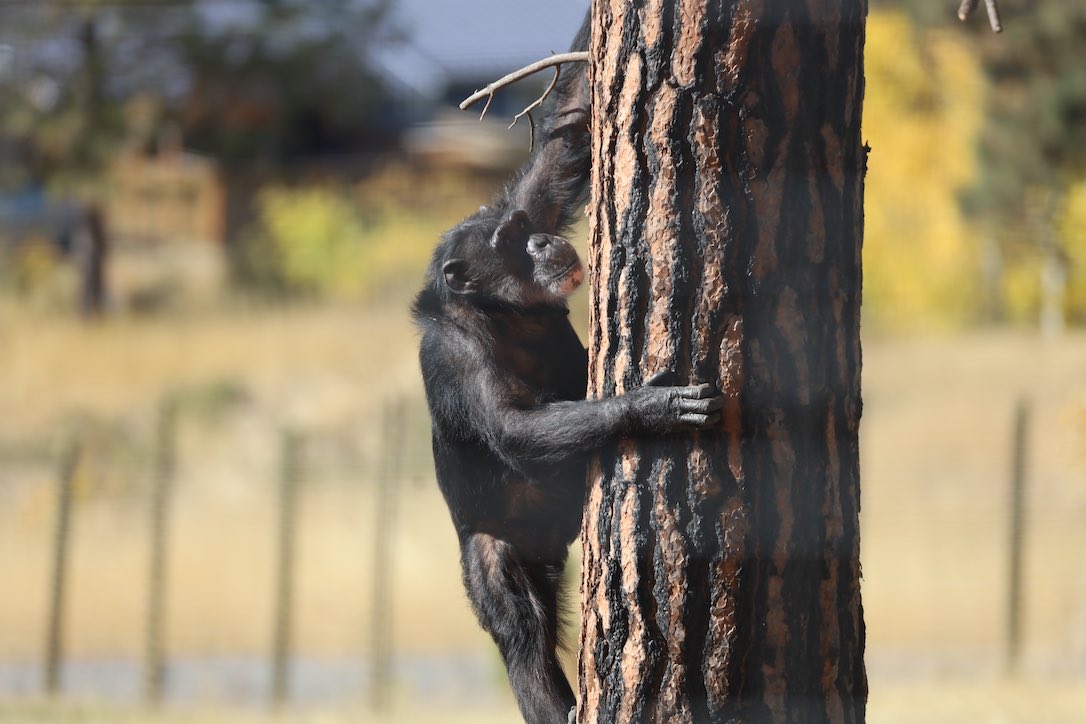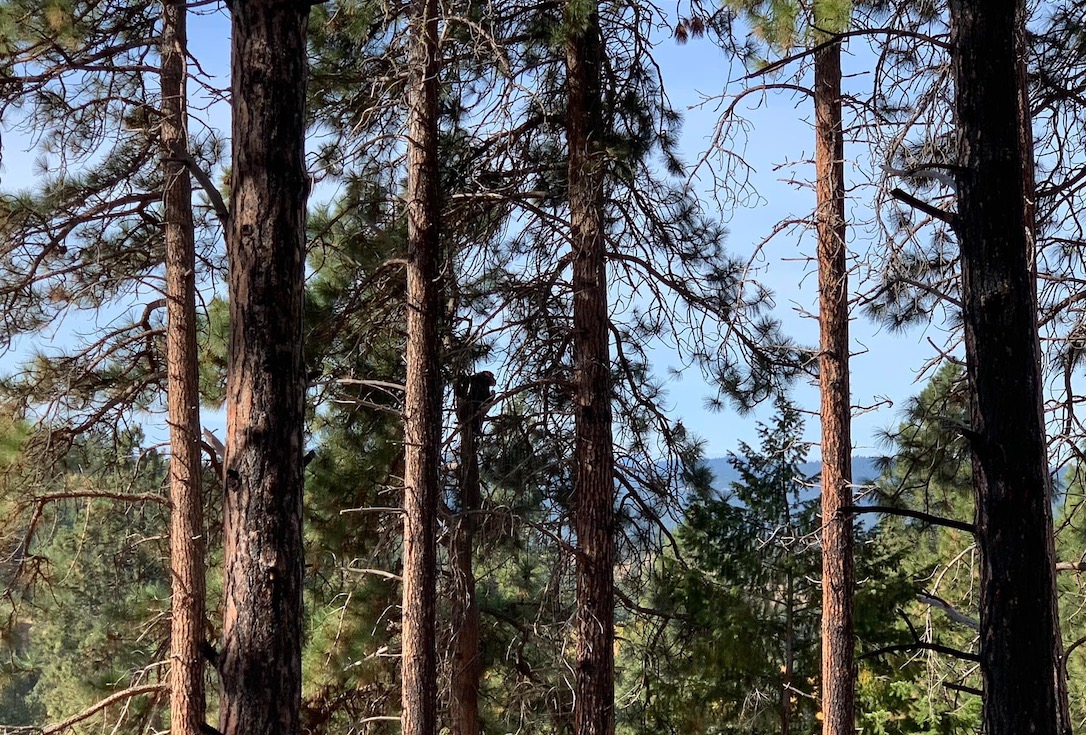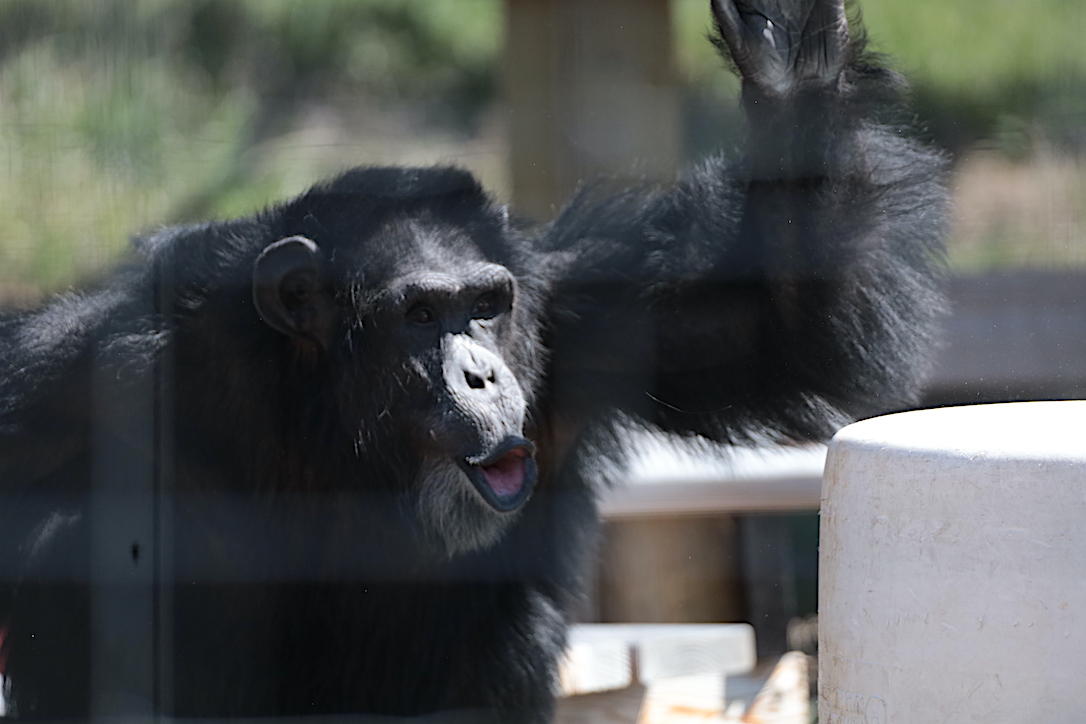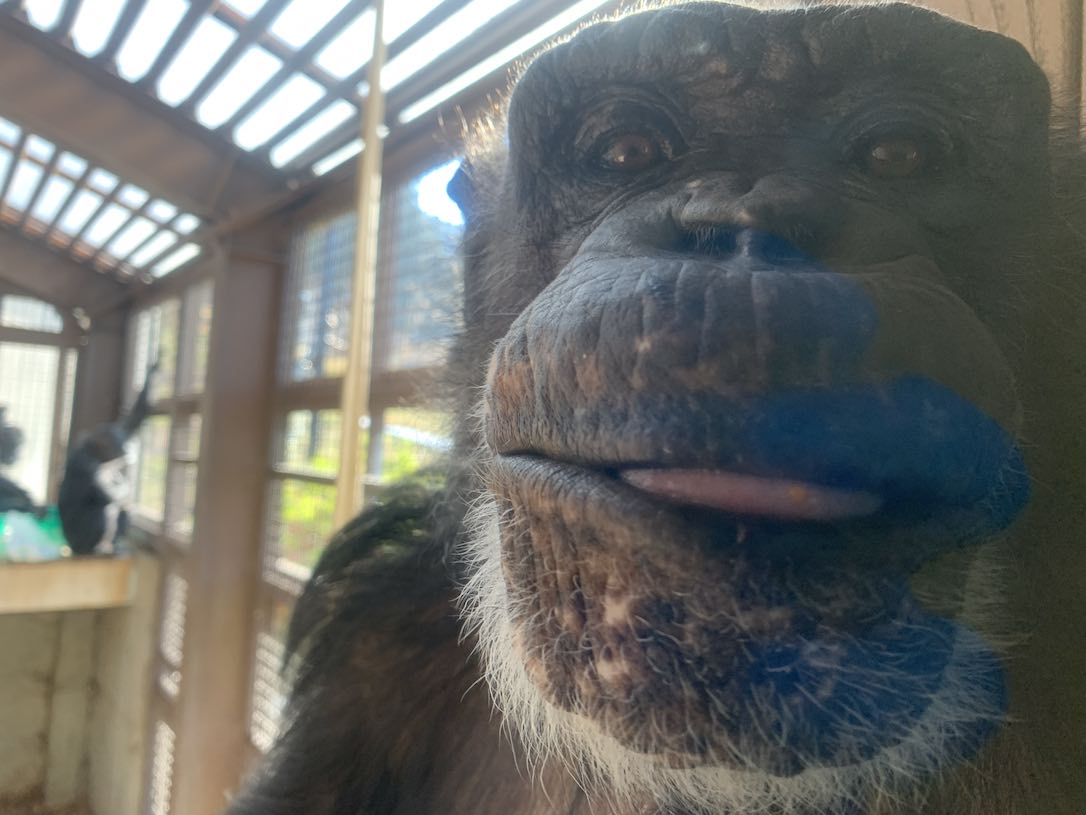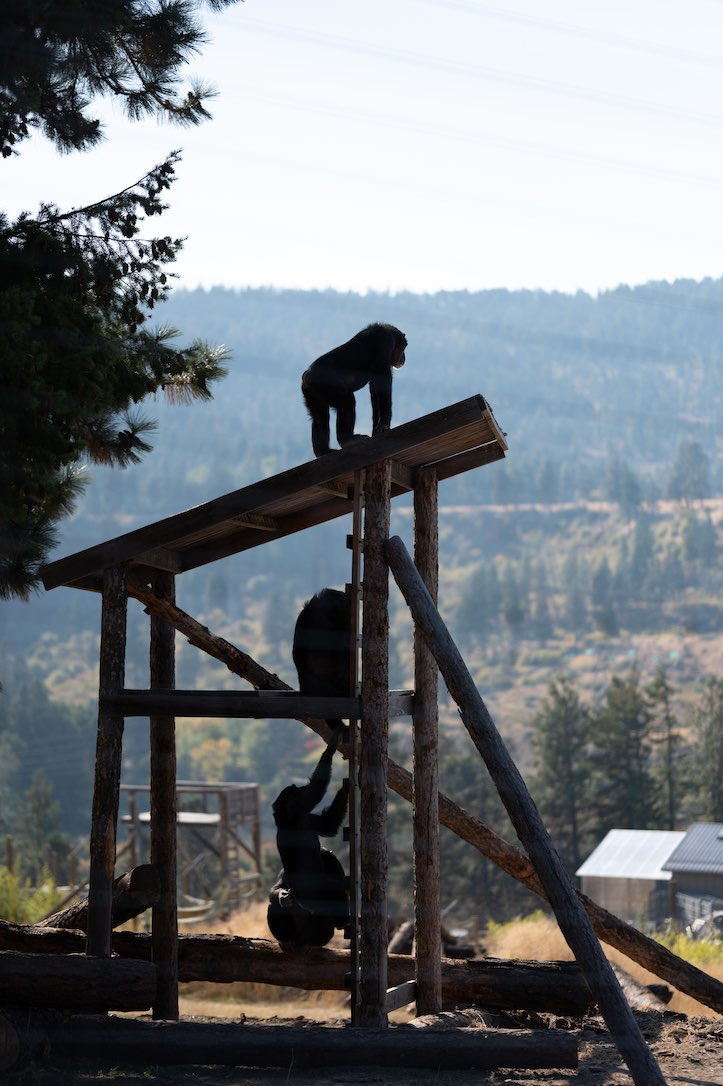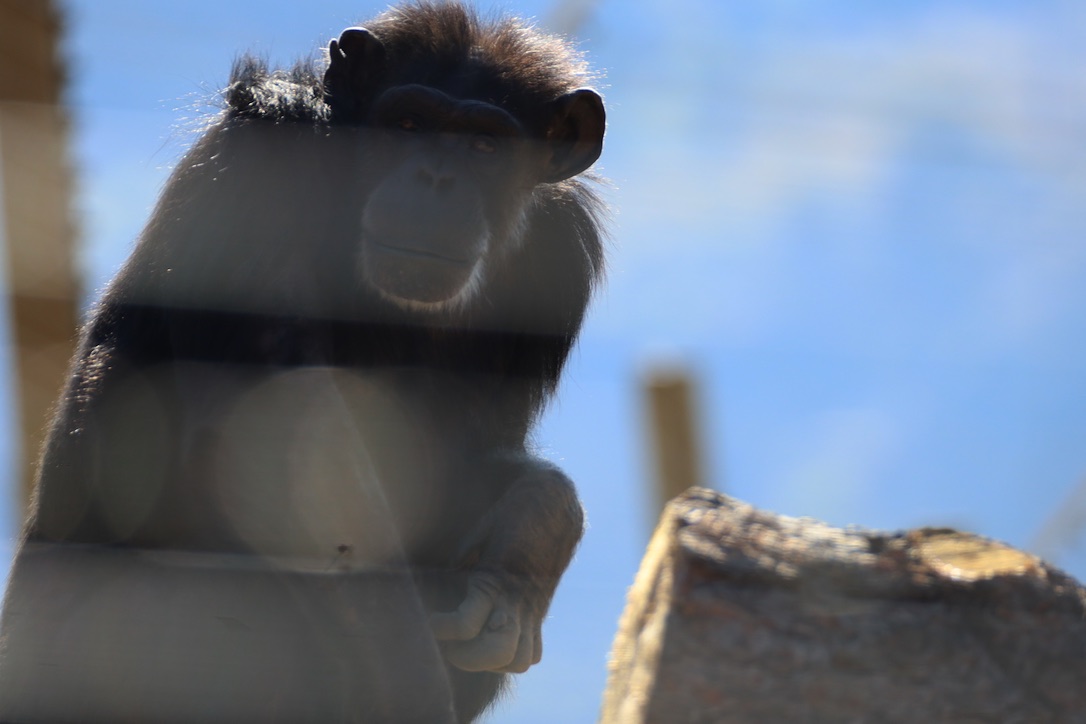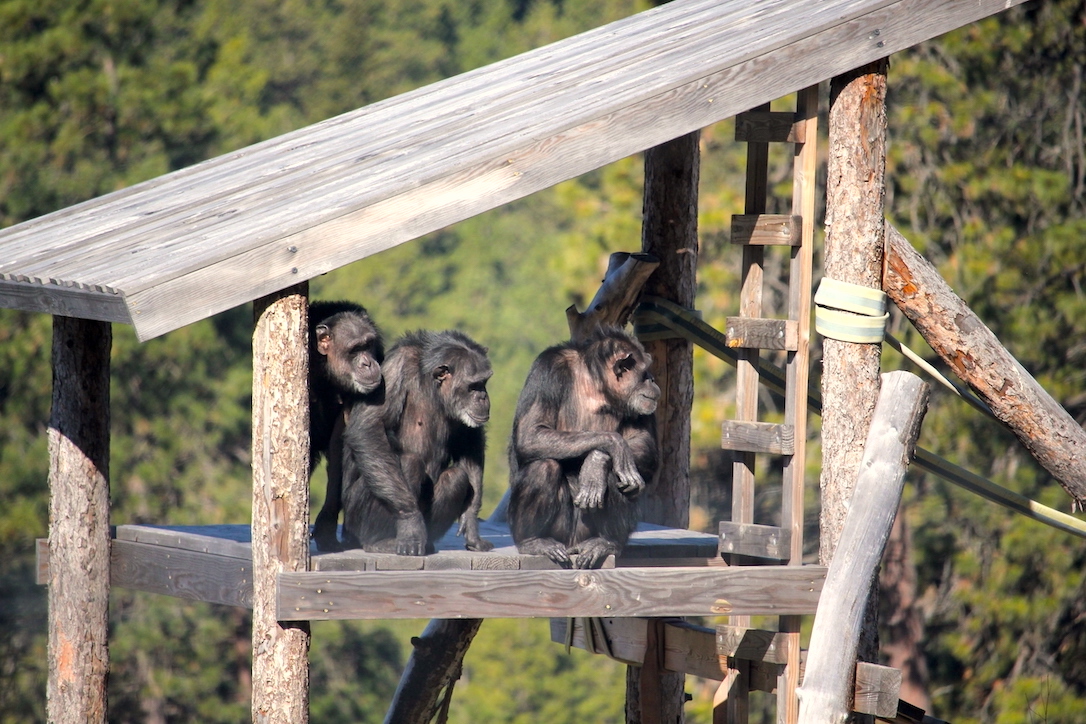Can we ever know what it’s like to experience the world the way a chimpanzee does? A good starting point would be to assume that their subjective experience is much like our own. After all, our two species diverged a mere 7 million years ago – the blink of an eye in evolutionary terms. It’s certainly a better place to begin than the pre-Darwinian view that nonhuman animals (a phrase which itself would have been redundant at best prior to Darwin) are devoid of conscious experience altogether. And yet it likely fails to do justice to the unique sensory and cognitive world that chimpanzees inhabit.
In the early 20th century, a German biologist by the name of Jacob von Uexküll coined the term umwelt – “self-world” – to describe the subjective world in which each species exists. An animal’s umwelt is the combination of their unique sensory experience, their morphology, their natural environment, and the things that are biologically important to them. It is reality as they perceive it. A tick, he explains, lacks eyes and ears but finds its way through the world sensing light through its skin and the butyric acid secreted by potential mammalian hosts. Bats “see” the world around them using ultrasonic echoes and ultraviolet vision. We may exist alongside ticks and bats but we inhabit different umwelten because each of our species evolved its own set of tools to make sense of the world around them in ways that are biologically relevant. Because we are each different, the world is different to each of us.
As far as we know, chimpanzees don’t employ active echolocation like bats or sense the sweaty chemical signature of other mammals with a specialized sensory organ like ticks. Their sensory perception, unsurprisingly, appears to be tuned quite similarly to our own. And yet they possess a variety of unique physiological, cognitive, and social faculties that must undoubtedly lead to a subjective experience that is uniquely theirs.
Merkwelt – The Perceptual Sphere
Take working memory, for example. Researchers in Japan tested chimpanzees’ ability to recall the position of nine Arabic numerals after they were flashed on a screen and then masked with solid squares. To perform the test correctly, the chimpanzees would have to recall the position of each number and then touch the masked squares in ascending order. With exposure of only a fifth of a second, the chimps had an 80 percent accuracy rate. Adult humans only managed to reach 40 percent. With training, humans’ performance improved but only in tests with up to five numbers.
It is theorized that the chimps possess a greater capacity for eidetic imagery. Similar to what we call photographic memory, it is when an image persists in the mind’s eye after a brief exposure. For how long can chimps recall these images? Take a look at what happens when a chimpanzee is distracted in the middle of a session.
Why would chimpanzees possess such an ability? Perhaps it confers an advantage when living in large, dynamic social groups. Or maybe it aids in foraging or hunting. Perhaps it’s common to many other animals, including our own recent ancestors, and humans merely lost it in an evolutionary tradeoff.
But more importantly, how does it influence the way chimpanzees experience the world? Does their perceptual world somehow linger in a way ours does not? Might the near past feel less “past” to them in some way?
Wirkwelt – The Motor Sphere
Our physiology affects the way we experience the world in ways that go beyond sensory perception. For example, a chimpanzee’s world is far more vertically-oriented than our own. Long, slender fingers with tiny thumbs make it easier to grasp when climbing while powerful arm and leg muscles made up of proportionally greater amounts of “fast twitch” fibers make even the most harrowing acrobatic feats possible with a graceful nonchalance.
They are still just as bound by the laws of gravity, and, unlike birds, their opportunities to move vertically are limited to the available objects that they can use to climb, such as trees, vines, and the like. But watch them play or fight and you will realize that they are nowhere near as earth-bound as we are. What does it feel like for not just your perception of the world to be three-dimensional but also your unfettered ability to move through it?
Sozialwelt?
Some propose that the concept of umwelt should be broadened to include an animal’s social sphere and that assumptions about what chimpanzees perceive as right or wrong may hinder our ability to understand them:
[W]e wanted to explore morality in non-human primates. In our set-up, that implied presenting “good” and “bad” experimenters to chimpanzees and let them choose among them. Interestingly, we had no homogeneous general results, however young males consistently chose the bad experimenter. Revisiting the underlying social meaning of the actions we have presented, we realized that we had defined “bad experimenter” as someone entering in a room and hitting a third individual whereas “good experimenter” was someone interrupting the fight and consoling the victim. Mostly all humans would have agreed with these actions being bad and good, respectively. However, would not it be possible that young males could have perceived the bad experimenter as good because during adolescence juveniles show preference for potential allies in future fights (a strong individual that hits others)?
While this interpretation is debatable, anyone that has spent time around male teenage chimpanzees and lived to tell about it should at least acknowledge its plausibility. What is right and what is wrong are no doubt influenced by both the needs and the structure of the social group, and thus the species. One of the hardest parts about being a caregiver to animals like chimpanzees is trying to avoid substituting our own morality for theirs.
The philosopher Thomas Nagel famously approached the problem of consciousness by asking “What is it like to be a bat?” Similar to von Uexküll, his thesis was that consciousness is the subjective experience of an animal which cannot be captured by descriptions of physiology and behavior. I can imagine what it would be like to hang upside-down with my eyes closed, but then I am only imagining what it would be like for me to do bat-like things. The actual subjective experience of a bat is inaccessible to me.
The point of all this is not that we shouldn’t try to understand what it is like to be a chimpanzee. On the contrary, it is our responsibility to try, for that is the only way we can attempt to meet their needs. But a little humility is warranted. As with the tests of working memory, it is all too easy to slip into comparisons about performance – to pity other animals’ deficiencies or marvel at their “superhuman” abilities. Instead, we should strive to view these examples as windows into other strange, rich, and wonderful worlds, equally suited but in ways all their own. “All animals, from the simplest to the most complex,” von Uexküll wrote, “are fitted into their unique worlds with equal completeness.” Only when we acknowledge this fact can we attempt to see the world through their eyes.
